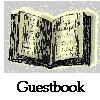







 |
 |
 |
 |
 |
 |
 |
 |
||
|
||||||||||||||||||
|
Games: |
||||||||||||||||||
It's true that the heal spell got a serious power-down in 3.5, but I'm glad it did. If you played a high-level cleric in 3.0, the change is a loss of power, but clerics are still a powerful class (generally considered the most powerful). The reason that the old heal was a problem is that it did not respect hit points. Hit points are key to combat in D&D. Special abilities and spells that circumvent hit points often cause problems. Cleric turning, for example, doesn't respect hit points, and it's such a problem that I don't use the standard system any more. For one thing, the turning system is so swingy that it's impossible to balance undead encounters. For an undead encounter to be relevant to a party with a cleric, it has to be so powerful that it's devastating to a party without a cleric. But even if turning were scaled back, it would still have the problem that it keys off Hit Dice instead of hit points. The rogue, fighter, and wizard can work together to damage undead, but the cleric's turning makes damage irrelevant. Bear in mind that I was the one who wrote up the 3.0 system for cleric turning, and I still don't use it myself. Instead, I use the alternative system in Complete Divine. In the alternative system, turning deals damage to nearby undead. That way the cleric's efforts "stack with" and support the efforts of the other characters. "Control" spells, such as hold, charm, and dominate, also circumvent hit points. They are really swingy, especially in the hands of the enemy. They also work against the other characters in the party. Once the fighter has put some damage on one of the hill giants, it's less exciting to dominate that giant and use it against its friends. In my campaign, I let the wizard stack metamagic feats on spells that deal hit point damage. Why? Becaus I'd rather that the wizard dish out huge sums of damage than that she dominate the enemy and circumvent hit points altogether. As for a more direct way to make hit points relevant to an enchanter, maybe each spell should carry a hit point limit as to how tough a creature it can work on. That way the fighter can weaken the enemy and the wizard can finish it off with a spell, and then the two characters are working together instead of in parallel. The heal spell was also a problem because it scaled up so drastically with the subject's power level. Using the new heal spell, my great red wyrm needed to heal herself three times while time stopped in order to get back to full hit points. If she'd been able to do that with one spell, that would have been too powerful. While I'm on the topic of hit points, let me extol their virtues with the enthusiasm of a convert. Back in high school, when I switched from (thoroughly hacked) D&D to RuneQuest, part of the reason I did so was that RQ has a more realistic hit point system. In RQ, even a tough character can die with a single lucky blow (say, a critical impale to the head). In D&D, a player can assess the combat and calculate when there's no chance whatever that a given blow is going to take their character out. RQ seemed more realistic. And it I still think it is. But I played a lot of RQ, and bad things happened. In one memorable incident, a long-running character was killed by a single lucky shot in an encounter that was supposed to be a diversion. More generally, once the characters were tough enough to take on big monsters, such as griffins, the monsters' ability to deal lots of damage made them hard to balance. Characters that dodged or parried were OK, but those that let a monster's attack through, or got critted, went down. Even at lower levels, the chance that an attack might disable one's sword arm or knock one down meant that a character's position in a fight could take an unpredictable dive. I gave up RuneQuest when I started designing original games with Mark Rein•Hagen. Then I took up D&D again once Wizards bought TSR. My personal D&D campaign has been running for five years, and I've had a lot of fun with it. I've also come to appreciate hit points. And by "hit points," I mean D&D-style hit points that scale up with character power, where wounds don't hamper character's abilities. I like hit points because they allow players to manage the risks they're willing to take. It gives players an unrealistic level of control over their characters' fates, but that's what you want for a game that expects someone to survive dozens and dozens of hard-fought, toe-to-toe battles. —JoT
|
||||||||||||||||||